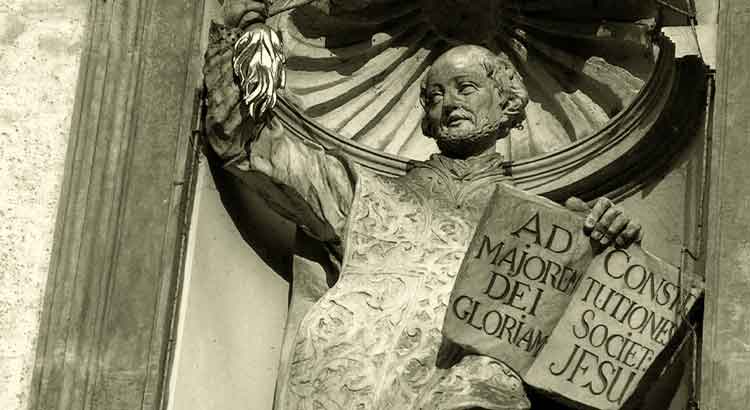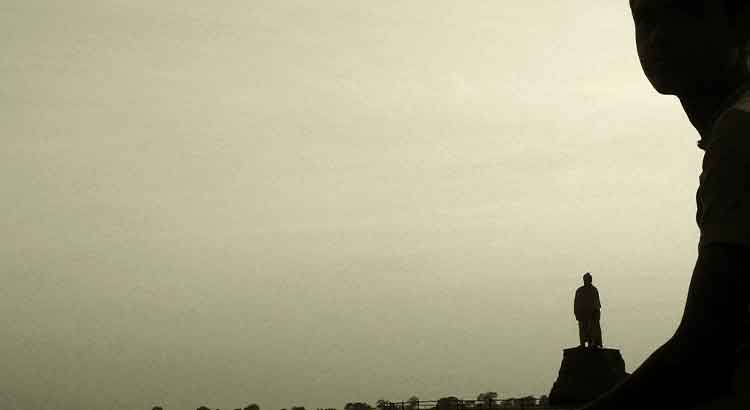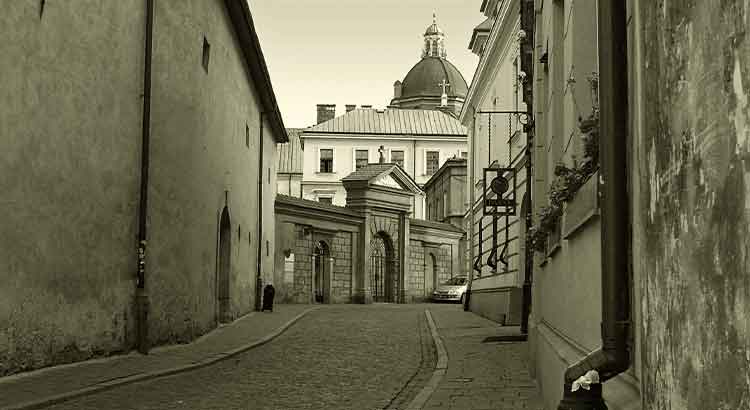I go through Ignatius of Loyola’s Exercicios espirituales and I cannot help but imagine him composing them in the incredibly miserable conditions described in his biography. The comparison with Frankl is inevitable. If we confront the tenor of these lines, or rather, if we consider these lines as originating in the circumstances surrounding the author, we find an unbreakable psychological strength capable of almost superhuman feats. Finally, we see a method in the conscious effort to give meaning to the miseries experienced, in the continuous affirmation of a vow, in the overcoming of limits, in the transformation of the mind into an indestructible fortress. These Exercicios attest to Ignatius’ absolute victory over his surroundings and himself. Admirable lines!
Tag: religion
The Biography of Ignatius of Loyola
The biography of Ignatius of Loyola seems fictitious. To read it in this century, to read it in the West, observing what the West has become, its great cities, its concerns, is like putting oneself in front of an absurd narrative. It is amazing the simplicity with which stupefying facts are presented in this “Autobiography”, written by Father Luís Gonçalves da Câmara, who limited himself to transcribing what he heard from the mouth of Ignatius. A few times, we read that Ignatius risked his life during his trajectory, but the impression we get is that, since he left his father’s house, he was always under constant threat. Imprisonment, trials, persecution, sickness, incredible poverty… it is hard to imagine harsher conditions for this man reputed to be a saint. The mere fact that he passed the sixth decade of his life, as he did, already seems to us, unaccustomed men, a true miracle.
It Is Really Admirable the Way Swami Vivekananda…
It is really admirable the way Swami Vivekananda interpreted and exposed Hinduism, integrating it, widening its arms and turning it into a legitimate catalyst of positive transformations for the human being. His Raja Yoga is the externalization of a noble, courageous, and stimulating philosophy. Very few authors are capable of deeply understanding the human condition and offering a solution that does not imply forced repression or the fading of the will. Swami Vivekananda, instead of leading to an aggravation of tensions or an eclipse of consciousness, proposes an active mental conduct directed to the elevation of one’s own nature. It builds, magnifies, encourages overcoming. What a great man!
Religions Have Always Thrived in the Midst of Intense Conflict
It was some theosophist who said that religions have arisen properly, each to the civilization in which they broke out. It seems an overly poetic statement, implying a universal harmony existing only in fantasy, and violently refuted by history. Before civilizations, there are individuals, and for these are not usually offered a menu of beliefs, so that they can consciously choose the one most suited to themselves—worse would be to judge them essentially suited to their own environment. It would be correct to say that civilizations have shaped the religions that have flourished within them, whether they were appropriate or not. Religions have always thrived in the midst of intense conflict, real battles both on a social and individual level. The first test of a religion is to overlap the previous beliefs. From this we can see the obvious: if religions had been born so perfectly suited to their environment, we would have peace, and not, as history shows, a progressive and violent “adaptation”.



